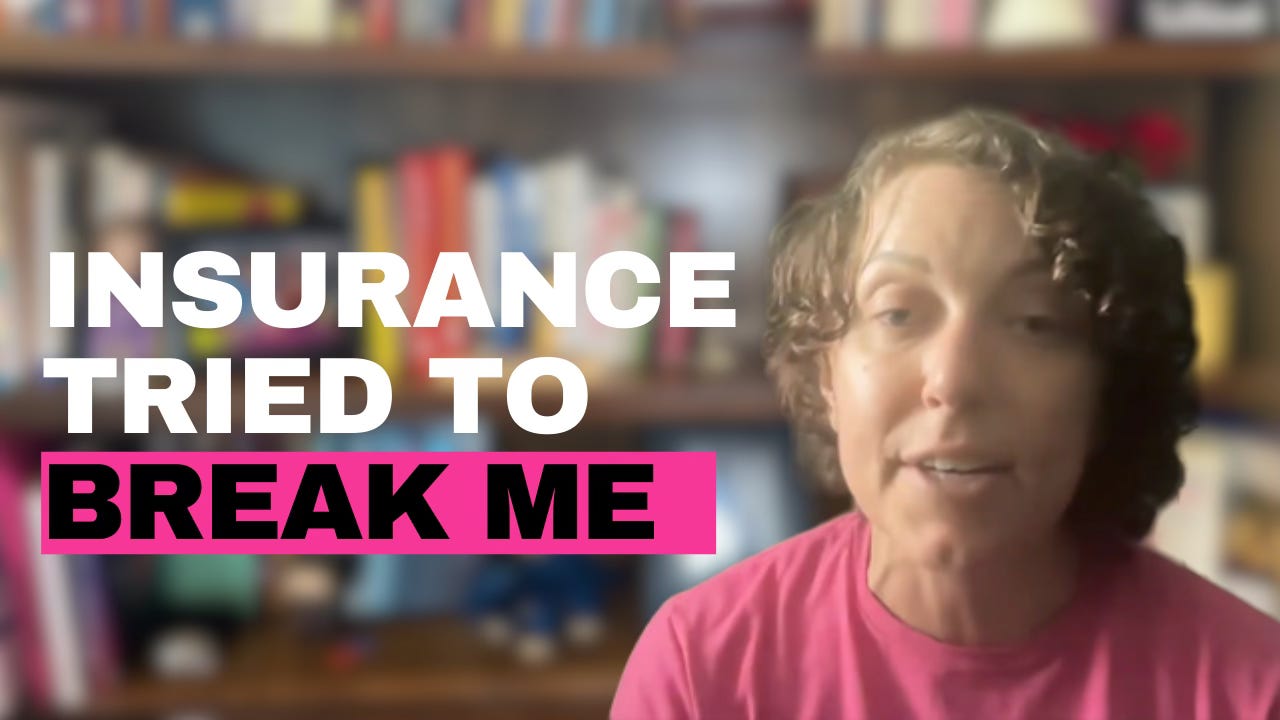The $416 Surprise
Fighting for the insurance coverage you need to fight cancer
The doctor's appointment just ended. You hand over your card expecting to pay $18—the same amount you've paid for months. The receptionist looks at you strangely.
"I just want to confirm: $416."
This happened to Jessica Gravel. Not $418. Not $400. Exactly $416 for what she thought would be a routine oncologist visit.
"I wasn't expecting that," Jessica told me. "Nobody will tell you anything at that counter. You have to wait for the boss, so you have to go to another office. And of course she's in a meeting, so then I have to leave a note to hopefully get called, and then nobody calls me back."
Navigating the Health Insurance Maze - Paid Subscribers Only (and you support KCA)
Three days later, she learned the truth: that $416 was her 20% share of a Lupron shot she gets every three months. Something she'd been getting all along, but her new insurance calculated costs differently than her old plan.
Here's what's maddening about this story: Jessica works in medical billing. She understands insurance better than most of us. And she still got blindsided by a 2,200% cost increase for the same service.
Photo by Blogging Guide on Unsplash
If someone who bills insurance for a living can't predict her own medical costs, what chance do the rest of us have?
This isn't about Jessica's specific situation—it's about the fundamental opacity of healthcare finances. We're the only industry where customers receive services before knowing the price, where identical procedures cost different amounts depending on insurance negotiations we're not privy to, where "covered" doesn't mean "free."
But here's what Jessica did that you can steal: she stopped fighting in the moment.
Instead of standing at that counter getting increasingly frustrated, she left. She took notes. She followed up systematically. Most importantly, she now asks different questions upfront: "What will this cost me specifically with my current insurance?"
She's also started using ChatGPT to draft her communications with medical offices. "I use chat GPT and say like, this is how I feel. Tailor me a letter for my neurologist. That way my tone or my pain or frustrations that I'm feeling in the moment isn't kind of there."
The result? Clearer communication, faster resolution, less emotional exhaustion.
This matters because healthcare isn't getting simpler. If anything, it's becoming more complex as insurance companies shift costs to patients through higher deductibles and co-insurance plans.
The old approach—show up, hope for the best, fight when things go wrong—doesn't work anymore. The new approach requires treating healthcare like the complex financial transaction it actually is.
Before your next medical appointment, try Jessica's approach:
Call ahead and ask for specific cost estimates with your insurance
Prepare questions in writing (or let AI help you craft them)
Take notes during billing conversations
Follow up systematically rather than hoping for callbacks
The $416 surprise taught Jessica something crucial: the system isn't designed to be transparent, but that doesn't mean you have to navigate it blind.
Tune in to Jessica’s incredible story - https://joellekaufman.com/episode-08-the-8000-lesson-why-your-worst-insurance-decision-might-save-your-life/



